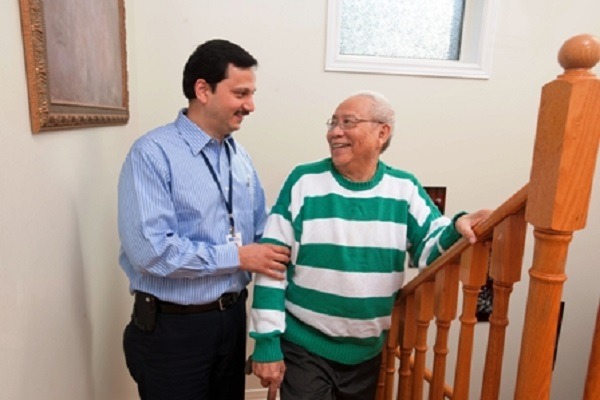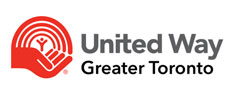Returning home from hospital


The idea of moving out of hospital and back home seems, on the surface, to be a transition worth celebrating. After all, for many patients it means returning to a familiar environment where they can enjoy creature comforts on the road to recovery.
But it can also raise stress and anxiety levels for both the patient and their families, even when the prognosis is good. Gone is the “security blanket” of around-the-clock hospital care.
“We were excited to bring my mom home,” recounts Christina Da Silva, of her post-operative experience with her mother last fall. “But there was also lots of stress. She was still in so much pain, it was scary. Her wounds needed to be changed regularly and we were worried about infection too,” she notes.
Da Silva’s story isn’t uncommon. Whether it’s caring for an adult loved one who is coping with a chronic condition, recovering from surgery or is going home to live out their last days, the transition can raise concern.
“Many people leave not really sure where to turn, especially if the move back home feels rushed,” says Nicole McEachern, an intake social worker for the Community Support Department at VHA Home HealthCare. “Depending on where you live, there may be a local program that helps with the transition,” she notes, including Central East’s Home At Last Program in Scarborough, of which VHA is a partner. The program assigns a Personal Support Worker (PSW) to discharged patients to escort them home, settle them in, buy groceries and, if needed, help with personal care. Similar programs are also offered throughout Ontario.
In most cases patients rely on the support of friends and family for the move back home. Lenore Cabral, VHA’s Manager of Community Support Programs and a social worker, advises that loved ones help gather information for the patient to help with the transition and actively inquire about community supports that may be available, especially if worried about the transition. Cabral suggests that before discharge, families:
• Request to speak with a, Community Care Access Centre (CCAC) Care Coordinator or a hospital social worker / discharge planner who can help families access and learn more about community resources and in-home supports if they feel they’re unable to cope with the patient’s return home on their own. Local adult day programs, for example, can give people caring for loved ones with cognitive impairments, dementia, etc. a break from their care giving duties.
• Are clear about the diagnosis and prognosis and how the patient’s condition will impact their daily functioning.
• Confirm any scheduled follow-up appointments and ensure they’re kept. According to Cabral this is a critical component of acute care in the community and often prevents deterioration, relapse or failure to cope at home which can ultimately lead to a return visit to the emergency room.
• Clarify what at-home care will be needed: be it a home safety assessment by an occupational therapist, wound care or strength-building exercises.
“It’s not surprising that people feel overwhelmed,” Cabral notes. “But knowing what to ask and the steps to take can ease the strain,” she adds.
While Christina Da Silva’s family was able to divvy up care giving responsibilities for her mom amongst family members, in hindsight she believes, “If we had to do it all over again, we probably could have used some extra help to take the pressure off. It would have given us peace of mind. We didn’t really have a concrete plan.”
It’s one of the reasons, Cabral, collaborated with other health professionals, including members of Solutions—East Toronto’s Health Collaborate, to create a free telephone and online seminar on the topic. “Home is where most patients want to be, however, it can weigh heavily on care giving family members—especially if they’re juggling other priorities,” says Cabral.
The free Ring and Reach telephone and online seminar, Hospital to Home—Community Resources for Caregivers helps caregivers understand the challenges of going home and educates them about what resources are out there that they might be able to tap into. “Some of these can be provided by the community or health care system,” Cabral notes, but points out that because the system is stretched, those who have insurance coverage or can afford to pay for private home support may want to explore these options too.
“The seminar really helps people know what questions to ask and what issues to consider in advance of a discharge. Planning ahead can help everyone feel more at ease and really enjoy their loved one’s move from the hospital to home,” she says.
Hospital to Home—Community Resources for Caregivers, the first in a series of free Ring and Reach telephone and online seminars, takes place on Wednesday, April 11, 2012 from 7:00 p.m. until 8:30 p.m.
Visit www.vha.ca/home/ring-and-reach-seminars to register or contact Lenore Cabral at: 416-482-4603 or 1-888-314-6622 ext. 4603.



